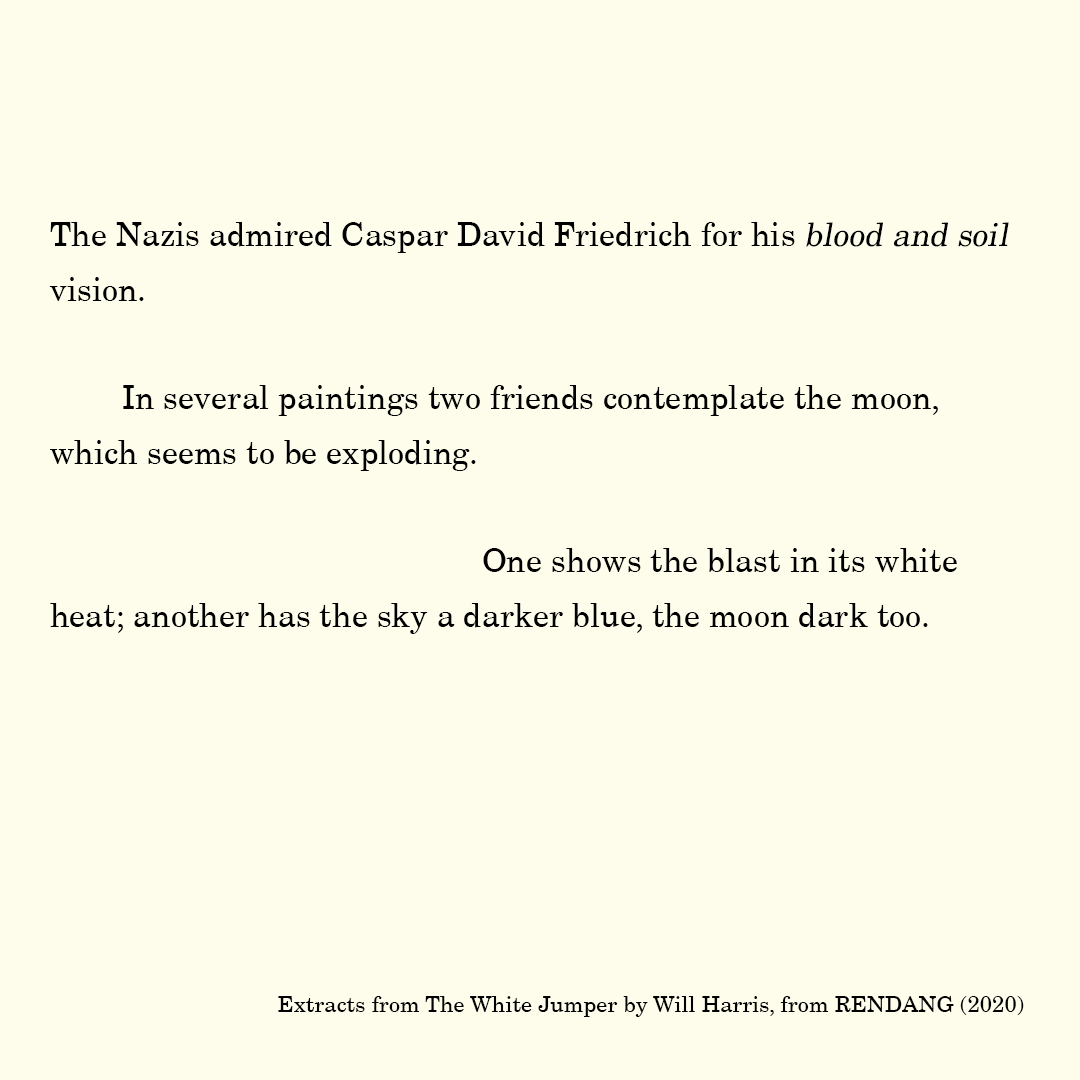Arts Foundation Fellow Will Harris took over our Instagram to share poems from his debut poetry collection RENDANG (2020) available at @grantabooks, and nominated for @fowardprizes for poetry, for the Felix Dennis Prize for Best First Collection!
State Building: “This first poem ‘State Building’ came out of a mix of things: my mum’s Chinese Indonesian heritage, my dad’s work as an antiques dealer, a broader reflection on brokenness as a positive, my tenuous relationship with my grandma, the pressure to assimilate if you’re “other”, and how to resist that.”
Yellow: “I wanted to write a series of poems about the phenomenon of yellowface, where white actors mimic a person of East Asian heritage. I read about this Chinese American magician whose act was stolen by a Scottish magician William Ellsworth Robinson. Robinson committed to the bit so thoroughly that he ended up dying on stage with his secret pretty much intact. It got me thinking about orientalism and mimicry, and the ways in which they reinforce one another. I was also thinking about the figure of the twin or doppelganger in literature and horror. I’ve always had this low-key fear of twins, which probably speaks to some worry that I’m in no way unique, and also – culturally speaking – this idea that mimicry effaces what it copies.”
My Name is Dai: “I met a person called Dai one night in the pub and he shared this sad story with me. At the time I’d been working on a series of “encounter poems”, so it seemed natural to write about him. I was thinking about the legacy of British Romantic poetry – not the side that seems to celebrate the self, but those moments where the self is ruptured through contact with the other. The kind of moment that forces you to recognise your own power and complicity in power. And I was thinking about talking, the compulsion to talk, how you can talk and talk and fail to communicate anything. That’s what Coleridge’s figure of the “Ancient Mariner” means to me: someone who can’t stop talking, who’s locked inside their own narrative. So it was strange and sobering to meet this drunken mariner. It felt – in some ways – like a reminder about the risks of writing: don’t get trapped in the feedback loop of writerly self-justification; keep in mind the world beyond the poem.”
Glass Case: “This poem came about through walking around the @britishmuseum with a notepad, trying to see anew the terror and strangeness of the museum as an institution, with its horde of brutally displaced objects turned into lifeless “cultural artifacts”. I couldn’t believe the Enlightenment Gallery was still called that, and how shamelessly it still celebrates imperial power, showcasing a jumble of objects from Asia and Africa “acquired” in the 18th and 19th centuries. It’s plunder, artlessly – worse, soul-destroyingly – arranged. And it’s worth noting the prevalence of donors’ names plastering the walls of the British Museum, like BP and JP Morgan. Culture, as ever, is what money uses to whitewash its origins.”
The White Jumper: “These are extracts from a longer poem. I’ve discussed it before so I’ll try not to repeat myself! I had this dream in which I was in a kind of platform game, running through a woodland area, when I saw a white jumper on a ledge of grass that was too far away for me to reach. I was struck by the banality of the dream, but also by how vivid it was. It stayed with me. I started keeping a journal, recording things I’d read and places I’d been to, thinking back to this dream again and again. The poem became a reflection on how a dream can seep into a life, colouring it, and how a dream might be used as a source text for making new work. Weirdly I’ve been dreaming less vividly in lockdown.”
Illinois: “This one is harder to talk about, I guess because it’s a lyric poem. Like with a song, you could summarise the content but it would tell you almost nothing about it.”
